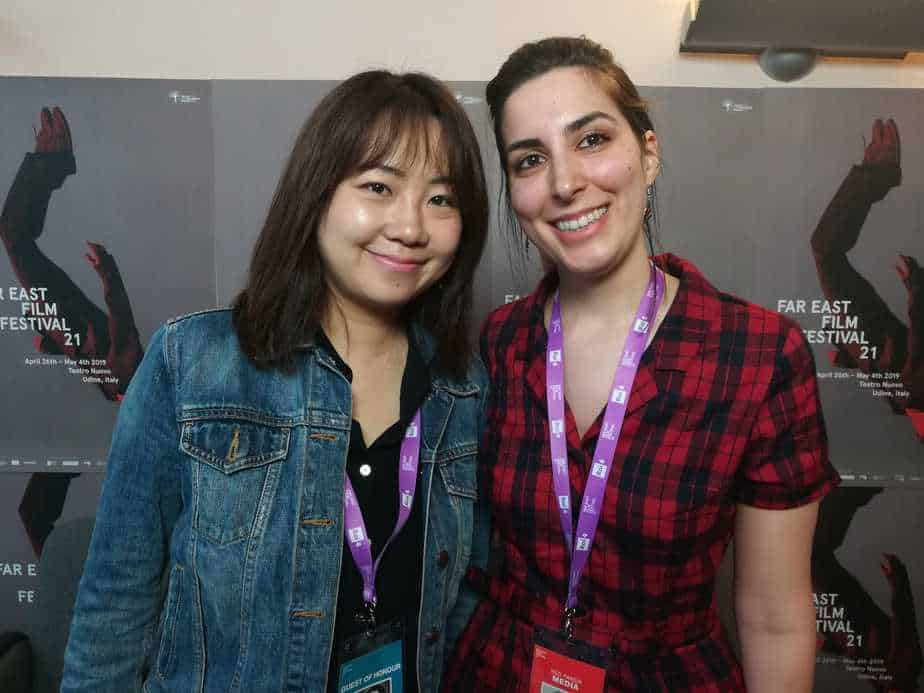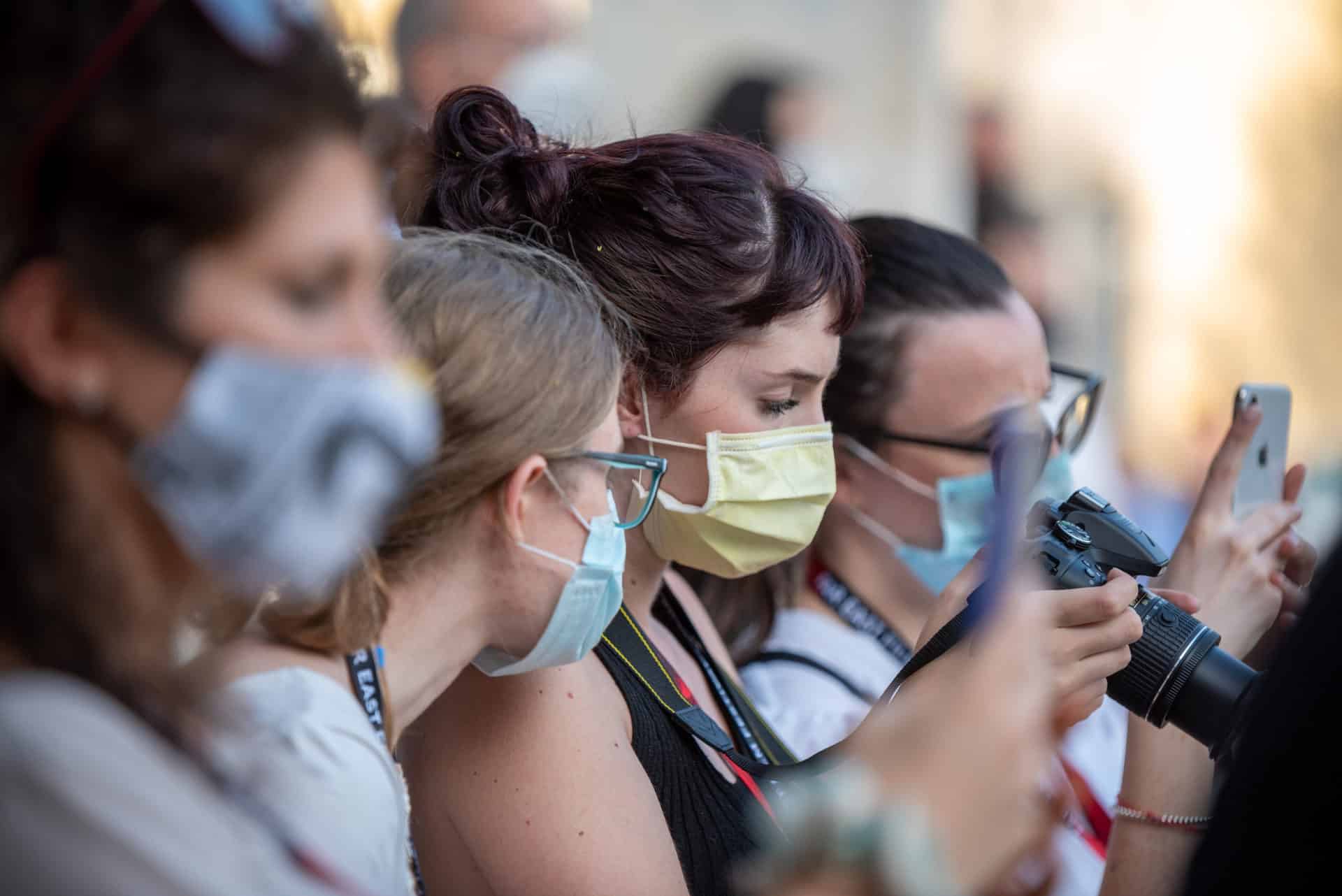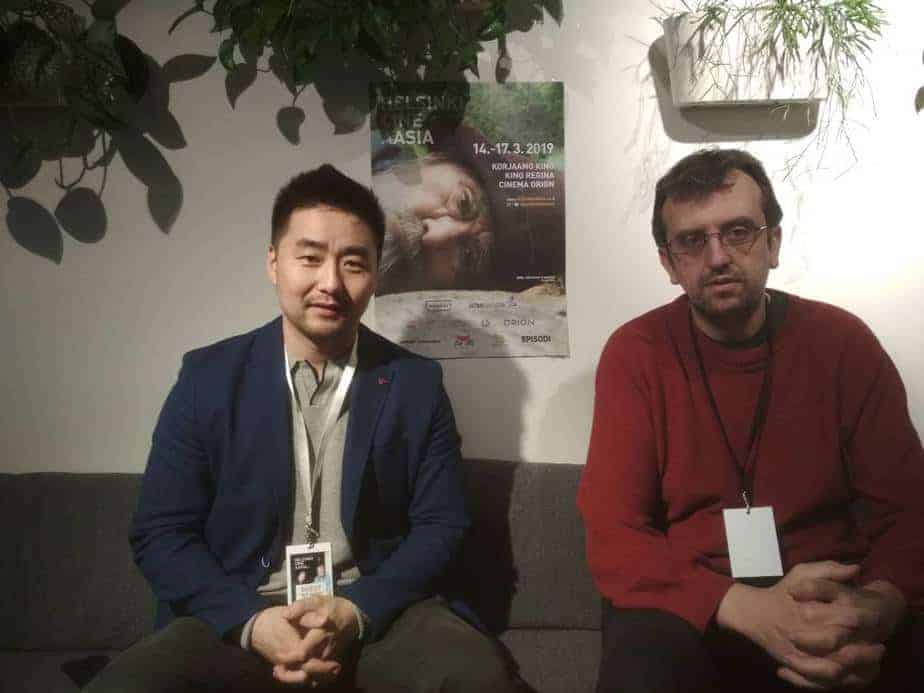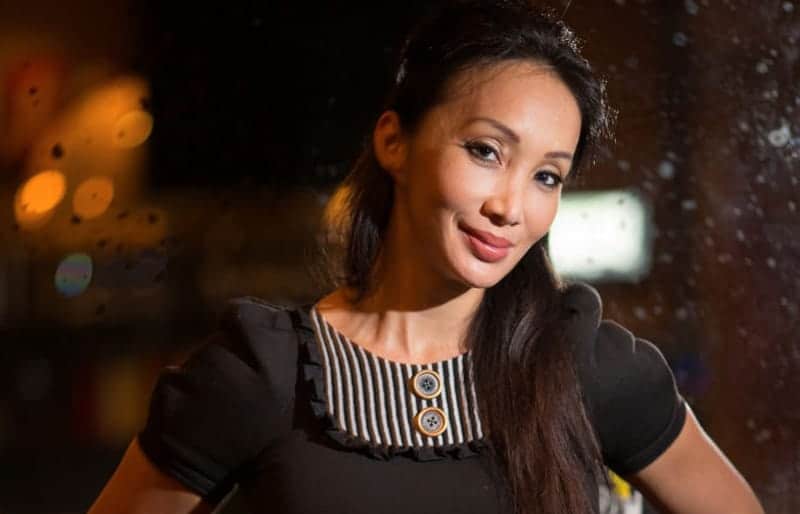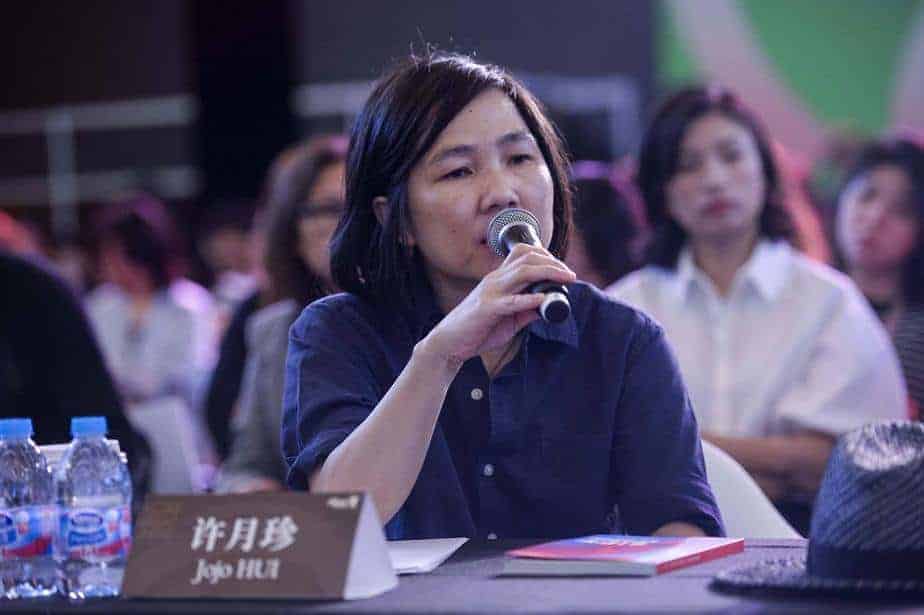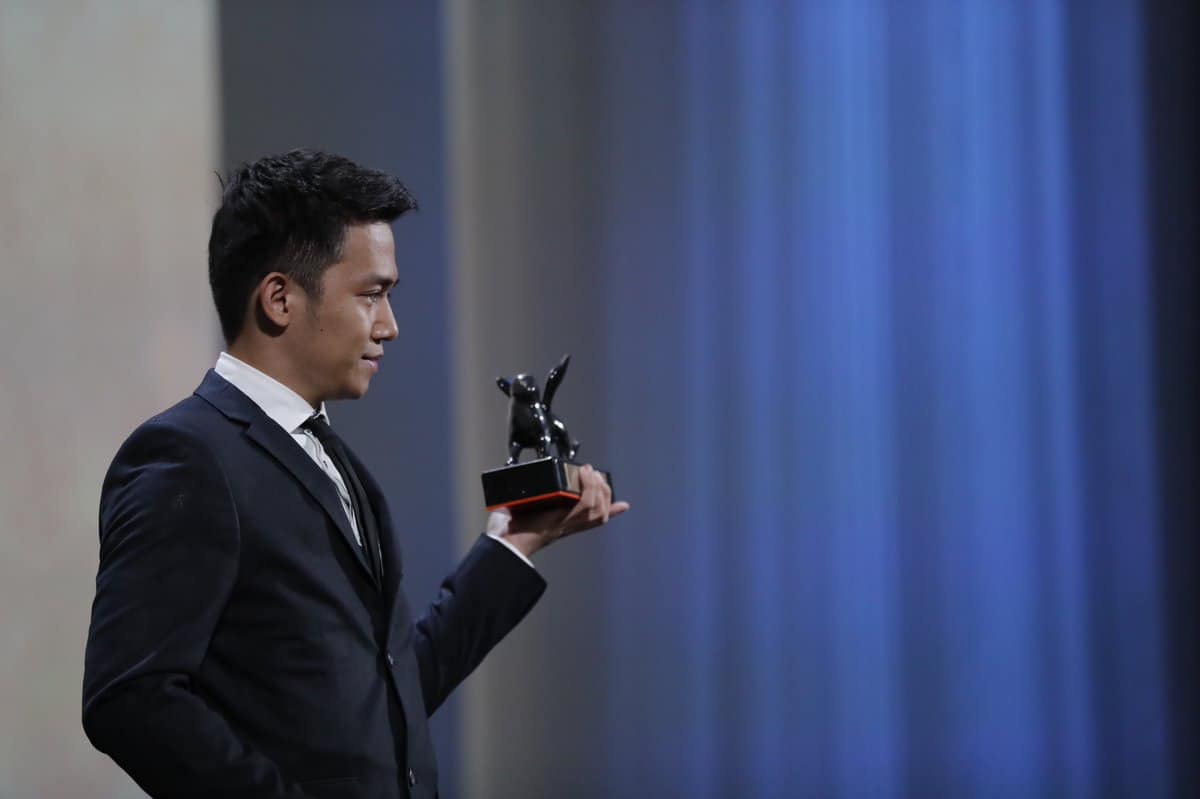Young Chinese filmmaker Bai Xue is definitely a talent to follow. She amazed audiences and critics worldwide with her first feature, “The Crossing”.The director was born in China and studied at the prestigious Beijing Film Academy. After working on the scenario for “The Crossing”, she won a competition organized by Wanda Pictures. The latest wanted to promote new incomers. Since its completion, the movie has been around film festivals, winning recognition both nationally and internationally (Pingyao, Dublin, Berlin for example).
Asian Movie Pulse met her in Udine, where she was presenting her movie at the Far East Film Festival.

What was your experience growing up in South China and what was your relationship to Hong Kong while growing up?
When I was six, I went to live in Shenzhen with my parents. Then, at 18, I went to the Beijing Film Academy, where I graduated. I am a little bit familiar with Hong Kong but I mostly have a strong relationship with Shenzhen. When I decided to make this feature film, I really wanted to write a story that I am interested in and the cross-border children came to my mind. I did a lot of research on this topic and I wrote the script in about 2 years, without any money. I finished the script and joined a competition in China, in Beijing, and found a funding.
What is your earliest and dearest film memory?
I watched a lot of old movies when I was in high school, so it's hard to choose. I need to think of which one was the most important. Maybe “Three Colors: Blue” (NB: by Krzysztof Kieslowski). The shot with the big eyes really impressed me. Actually, we met Juliette Binoche in Berlin and I got to talk to her about this movie, so it was great.
“The Crossing” has enjoyed a good reception nationally and internationally, from the critiques and in various film festivals. Was it something you expected?
Actually, when we were doing the film, we didn't expect to go to any festivals. Back then, it was very far from me. My main crew is all classmates so working together was a good time, which made me enjoy the process. About the result, I didn't expect much but when you are doing a film with all your heart, you should have some good results.
The fact that my film has been shown in different areas already (in the USA, in the UK) is really opening doors for me, it's making me learn new things, meeting new people and connecting with them.
You have been to different countries with the movie. Did the audience's reaction varied according to the country it was presented in?
In Berlin, I was nominated in the “Generation 14plus” section, so many teenagers came with their parents to watch the movie. When they went out of the cinema, they came and talked to me. They felt very familiar with the topic, as much as the audience from China. I think it's a pretty universal movie.

What inspired you to write a coming out of age story in the first place? Is it based on your own experience?
I didn't have that specific experience but I am really familiar with the topic and I was really interested in this group of people living in Shenzhen and going to school in Hong Kong. They are very unique. The idea to go through the border to go to school is very interesting. I liked the topic and made a lot of research.
Did you actually get to talk to people like Peipei, who have to go through the border to go to school?
I did. The smuggling part was something I added (laugh)
What where the difficulties for the movie to be made?
I think each part has different difficulties. The most difficult part was probably when I was writing the script. In these times, you are very lonely, you don't know what will happen, if you can write a good script, a good story and that was the most difficult part. And then of course you must face different situations and issues during the actual shooting. It's really not easy to make a film (laugh).
One of the reading I had of the movie was that Peipei doesn't really belong anywhere. Her crossing can be seen as a reflection of her current position. She is an inbetweener, physically but also psychologically.
I think many people in China have this feeling. It is also due to the fact that time is changing and many people are leaving their hometown to live in the big cities. Which is actually pretty similar worldwide. As you grow up, you also need to find out who you are and where you come from. These questions come to mind to everyone. In that sense, Peipei is a very typical and relatable character.
Could you elaborate on the relationship between Peipei and her best friend, Jo?
When I went through the character's story, they all had their own storylines. Jo is very unique and atypical. Her family doesn't care much about her, they care more about her brother. The character is externally very alive, but internally she is going through a lot of emotional challenges. For me, she is weaker than Peipei and the two girls are very different, which is how the relationship works.
The actress who plays Peipei is doing a great job, how was it working with Huang Yao?
She is very pure and doesn't look like she is actually 20-something years-old. She really fits the character. I was really lucky to work with her. She is making the movie's success. She is a professional actress and she has won many prizes with this movie (NB: she won the Best Actress Award at the Hong Kong International Film Festival, the Best Actress Award at the Pingyao International Film Festival and Best Newcomer Award at the Beijing Student Film Festival).

The movie focuses on both mainland China and Hong Kong. Traditionally, we tend to separate the cinema of the two entities. Here, there is a merging of the two. How do you see this change in the future?
Actually, nowadays many filmmakers and producers from Hong Kong come to Beijing. That is the change. The Chinese film market is very big and I think that the communication between the two will get closer and closer in the future.
How do you see the future of Chinese cinema, the new tendencies?
Making a first feature is very difficult, everywhere. But nowadays there are many chances and opportunities for the new generation in China. You can have a chance to meet producers, movie companies, etc. so it's a good change. The big companies believe in the new generation and young filmmakers. My funding comes from the biggest company in China, Wanda Pictures. They also made some big movies and commercial movies, and yet they helped me to do my first movie.
Being a woman in a male-dominated industry, do you feel that you have an extra responsibility, or maybe more opportunities?
I don't think in terms of problem or opportunity. I just do what I should do. First thing is to write a good story, which is what I want to do. I don't think in terms of male/female distinction.
The freeze frames in the movie are very interesting. What role did they play, what did they represent for you?
They are three different steps for the character. First, she gets the package and she doesn't know why or what it is. Second, she succeeds. Third, she feels in danger. The freeze frames express the changes of the character. They are three important steps for her and I wanted to make this clear and have people remember it. Another reason is that as a new director, I wanted to do something to make my film unique and doing it was very cool, so I just did it.


